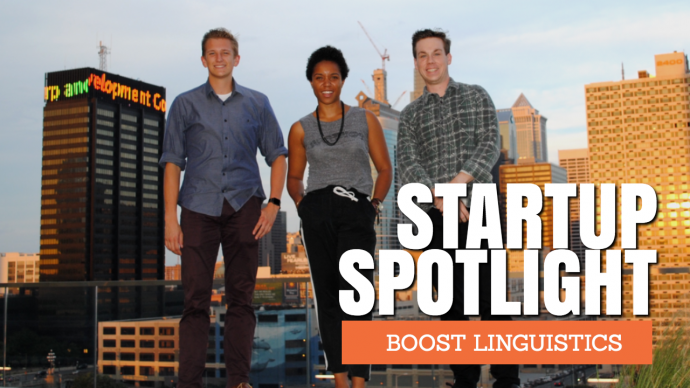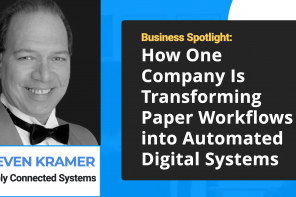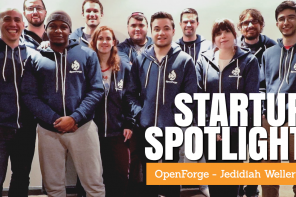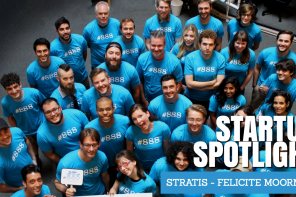The Drexel-born startup, Boost Linguistics aims to augment the way businesses create marketing material. Boost’s writing enhancement software reviews a piece of content and suggests changes to improve its overall impact on a customer. Their software uses AI-powered tools to assess the emotional tone of copy and suggest alternatives to increase the effectiveness of the communication and ensure corporate messaging is consistent and on-brand.
Boost Linguistics Co-founders Jeff Nowak, Ethan Bresnahan, Alexandra Dodson and Warren Kushner officially started their business in 2015.
We caught up with Boost’s Co-founder Ethan Bresnahan for an exclusive Startup Spotlight interview:
Ethan, How did the inspiration to start Boost Linguistics come about?:
Boost grew out of a Drexel consulting class sponsored by the U.S. State Department. This experience led us to discover natural language processing (NLP) in its early stages and see the commercial potential in marketing tech.
Three of the four founders have held marketing positions. During that time, we saw marketers struggle to ensure that their content elicited the right emotion and fit the tone of their brand. As members of the marketing community, we saw the critical problem that NLP could solve.
After the class, having recognized the potential of NLP, we founded Boost Linguistics. Boost was created on the principle that, as a vehicle for thought, language should be a bridge not a barrier to understanding. Using artificial intelligence to augment a writer’s own creativity, we help unite creators and consumers by inspiring audiences to judge ideas not by the creator’s ability to choose one word over another, but by the caliber of the idea.
What problem is Boost Linguistics aiming to solve?
Currently, Boost is working to support marketing teams as they produce copy that engages audiences. Our AI backed assistant editor provides an objective analysis to text and offers suggested changes to language in order to influence the tone of copy. This allows marketers to understand how their copy will be perceived and make changes to correct the perception, before publishing.
How is Boost Linguistics different from similar competitors?
We greatly appreciate our competitors to date based on the adage ‘if you want to know what tomorrow looks like for everyone, look at what the rich have today.’ The same goes for B2B – our competitors offer their services at a price point only affordable to Fortune 50 companies. What this has done is opened the entire industry to the impact our technology can provide. We are working to democratize this technology to empower everyone.
VC, Angel Investors or Bootstrapped?
Bootstrapped to date.
The biggest mistake you’ve made or greatest lesson you’ve learned so far?
The greatest lesson we learned has been our pricing model. We launched the Boost Editor with a utility pricing structure (much like one would pay for electricity). We did this with the assumption that our users would rather keep costs low. However, the day we launched, we found that the pricing model was a huge stumbling block for many of our buyers and switched to a regular SaaS model – one flat rate and unlimited usage.
The smartest move you’ve made so far:
When we launched the Boost Editor (which was geared towards SMB in-house marketing teams and agencies) we were approached by other marketing platforms that wanted to integrate our tech into their product. With our goal being to integrate seamlessly with the marketer’s workflow, we saw a great opportunity here – create an API and empower the users of these platforms with our technology. In short, the decision to build and launch an API has been a great opportunity for us.
Would you rather have Bill Gates, Mark Zuckerberg or Jeff Bezos on your team?
In looking at the influential startup leaders from recent history, we decided that Reid Hoffman would be the greatest asset to the Boost team. We are a company built on re-examining first principles and asking ‘is there a better way to do this?’. Reid is known for his ability to examine the forces that make something work and harnessing them to create a successful business (LinkedIn and the network effect).
What are some unexpected hurdles you’ve faced?
During customer discovery, we spoke with over 100 content marketers. Almost all of them said they wanted a way to augment their ability to elicit emotion in their content. We operated under the assumption that that meant users would know what emotions did what. However, when we launched we found a higher barrier of customer education than we expected. Since then, we’ve been working to create and publish content that shows the effect of specific emotions within the buyer’s journey.
Your favorite team building activity is:
We tend to be pretty spread out in terms of our day-to-day. We’ve found that our greatest team building activities have been traveling to various competitions and conferences together.
Where do you envision Boost Linguistics in 5 to 10 years?
Our goal for Boost Linguistics is to reduce the friction that occurs when transmitting ideas from one mind to another. While text-based communication is a critical piece of this, there are a host of other ways we communicate. Specifically, we see ourselves expanding our tech to deliver images along with a piece of text that supports the message being delivered.
The biggest thing you look for when hiring is:
We’ve recognized the importance of company culture from day one. Our application process is a little unique in the sense that while we are looking to fill a position that benefits our team, we realize that there’s a reason someone wants to join our team specifically. We also realize someone who joins our team won’t be with us forever. The result of this framework is that we look to make sure that the work anyone does on the Boost team directly correlates with where they want to go with their career, and empower them to take the next step on their career trajectory with the skills developed at Boost.
What are some of the key things you’ve learned so far as an entrepreneur?
Learn to enjoy the process and the journey because that’s all there is
No one owes you anything – any time or resources that you receive are given freely, be appreciative and hustle, hustle, hustle.
What advice would you give to entrepreneurs just starting out?
- Be there in person. (get off the couch and show up)
- Practice being out of your element.
- Send thank you emails.
- Read OFTEN (audiobooks count if you actually listen)
- You cannot do this alone.
- Show people how the sausage is made, no one is going to steal your idea.
Read these books:
Thinking, Fast and Slow by Daniel Kahneman, How to Win Friends and Influence People by Dale Carnegie, Art of the Start by Guy Kawasaki, any and all books by Peter Drucker.
Learn more and connect with Ethan:
www.boost-ling.com
www.linkedin.com/in/ethanbresnahan




